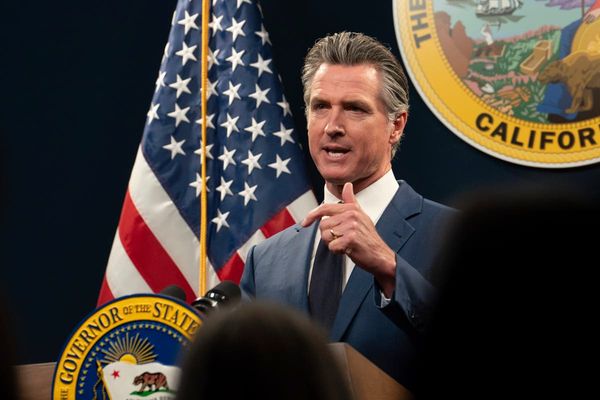
The banking crisis caused by the sudden collapse of Silicon Valley Bank (SVB) on March 10 continues.
But for Elon Musk, the serial entrepreneur and billionaire, new problems are already looming over the financial system and the economy.
On March 10, regulators had to shut down SVB, resulting in the second-biggest bank failure in American history, after the collapse of Washington Mutual in the financial crisis of 2008.
Two days earlier, Silvergate Bank (SI) wound down its operations. And on March 12, regulators surprised everyone by announcing the shutdown of Signature Bank (SBNY) in New York.
The crisis also reached Europe, pushing the Swiss government to force UBS to urgently buy its compatriot Credit Suisse (CSGKF) for the modest sum of $3.24 billion. Credit Suisse, a bank shaken by scandals in recent years, was seen by investors as the weak link in the midst of the banking crisis.
The Bond Crisis
Unlike the 2008 financial crisis, the problem this time around is not the quality of the banks' assets. The current crisis of confidence was caused by the fact that Silicon Valley Bank bet on interest rates without protecting itself against the risks associated with them.
The Santa Clara, Calif., bank bought Treasury bonds and mortgage-backed securities when interest rates were near zero. Since the borrower was the federal government, there was no risk of default.
However, the risk that interest rates would rise was very present, especially since Jay Powell, the Fed chairman, in mid-2021 began to warn that the Fed would soon start raising rates in order to fight inflation.
When this happened, the value of SVB's portfolio of assets declined, causing a loss of $1.8 billion when the bank sold some of these assets. To satisfy the withdrawals of its startup clients, who were struggling to raise money, SVB announced that it had to raise capital to the tune of $2.25 billion. This announcement caused a bank run.
Investors believe that a large number of banks, and more particularly U.S. regional banks, have made bets similar to SVB (SIVB). They wonder whether these banks have enough capital available to cover the losses if ever their customers wanted to withdraw their money.
The regulators have promised to do everything to avoid a collapse of the system. They have already announced extraordinary measures for SVB and Signature Bank. For example, they have guaranteed all deposits, even those exceeding $250,000, the limit at which the Federal Deposit Insurance Corporation has guaranteed deposits so far.
Commercial Real Estate Debt
But while they are still trying to address the current banking crisis, Musk has just warned of another problem that lurks in the financial system and the economy in general. These are commercial real estate debt and mortgages. The billionaire issued the warning in a Twitter thread on March 27.
The Kobeissi Letter, an industry leading commentary on the global capital markets, has posted alarming data about the commercial real estate.
"Over the next 5 years, more than $2.5 trillion in commercial real estate debt will mature," the Kobeissi Letter said. "This is by far more than any 5 year period in history. Meanwhile, rates have more than doubled and commercial real estate is only 60-70% occupied."
The newsletter which provides analysis on equities, crude oil, natural gas, gold, treasuries and currencies, added that "refinancing these loans is going to be incredibly expensive and likely lead to the next major crisis," but they said that the "worst" part is that "70% of commercial real estate loans are owned by small banks."
It concluded that: "Rapidly rising rates are teaching everyone a valuable lesson. There's no such thing as 'free' money."
Musk agrees and believes that residential mortgages must be added to this, making the situation even more critical.
"This is by far the most serious looming issue," the billionaire said. "Mortgages too."
Rising interest rates have made payments on almost all loans more expensive. In commercial real estate, many borrowers with variable interest rates have already seen their monthly payments soar. To continue to make their loan payments, they must tap into their cash flows. As for the borrowers whose rates are fixed, the bill will soar when they have to refinance.
Small Banks
The problem is that most loans in commercial real estate have been made by banks with less than $250 billion in assets, according to Trepp. Many experts fear that many borrowers will default, which would be a huge problem for smaller banks as they will have to mark down the value of these loans.
"We analyze U.S. banks’ asset exposure to a recent rise in the interest rates with implications for financial stability, said a recent paper by a group of economists from four different universities -- Erica Xuewei Jiang, Gregor Matvos, Tomasz Piskorski, Amit Seru.
"The U.S. banking system’s market value of assets is $2 trillion lower than suggested by their book value of assets accounting for loan portfolios held to maturity. Marked-to-market bank assets have declined by an average of 10% across all the banks, with the bottom 5th percentile experiencing a decline of 20%," they wrote.
Marking an asset to market means assessing the value of the asset based on the current market market conditions, not its face value.






